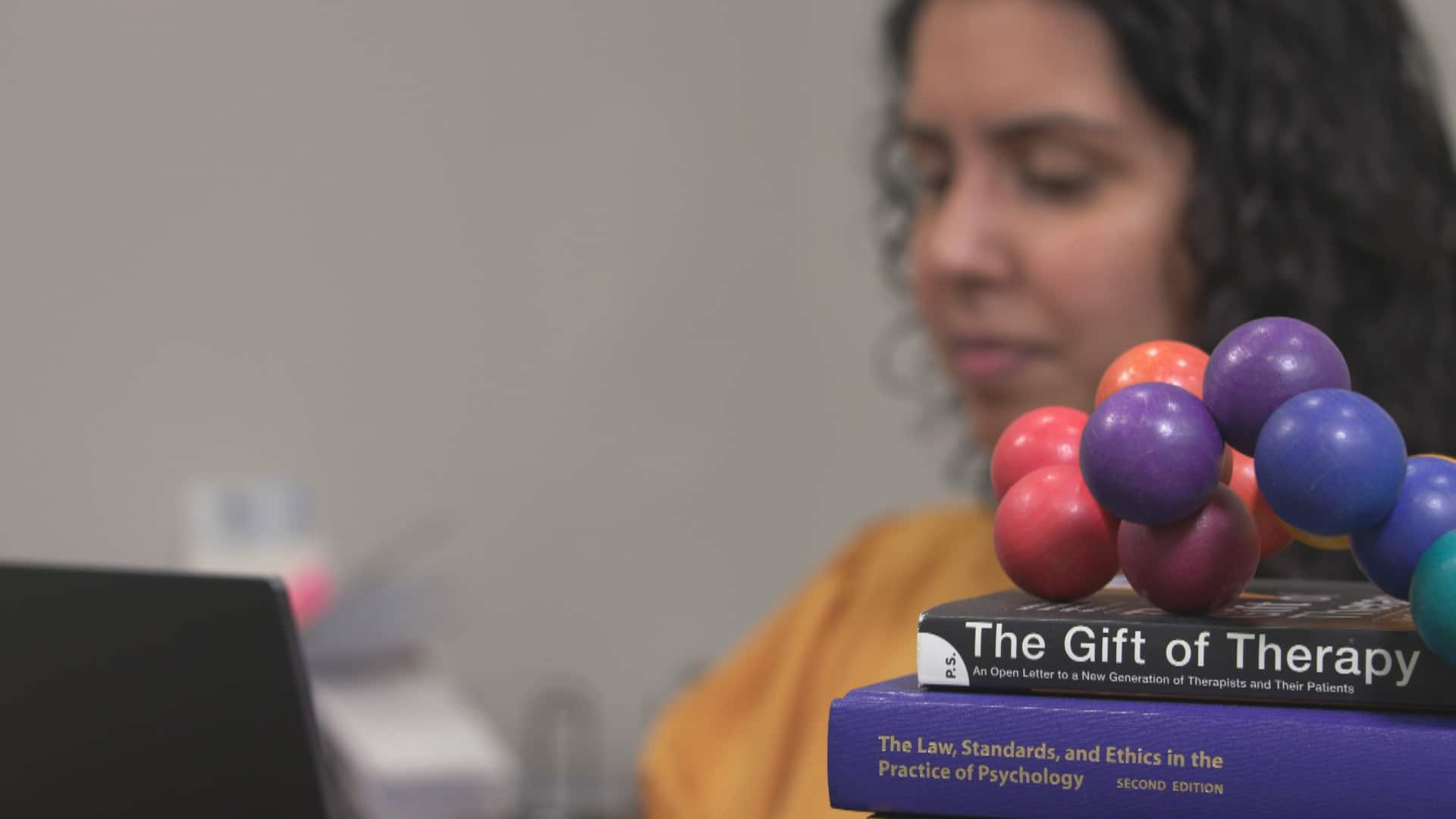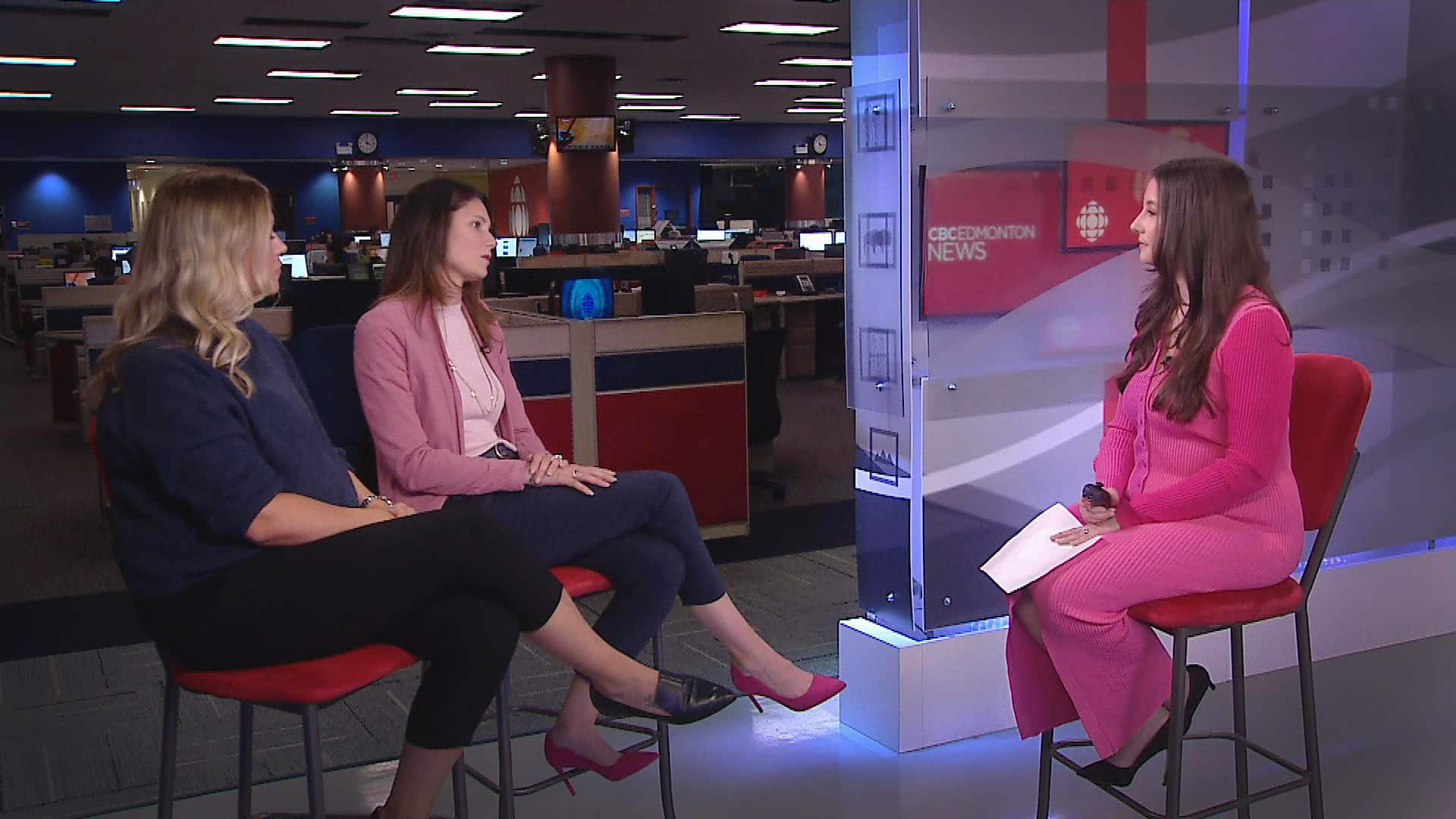Cost of Living76:40:00The Great Exhaustion
For years, Sabrina Royal worked with one of Canada’s big banks. She worked her way up from an entry-level job to a management position. But that’s when her hours started getting out of hand.
“When it was good, I was working 8 a.m. to about 6:30 p.m.,” Royal, 42, told CBC Radio’s Cost of Living. “When it was bad, there were times when I was signing off at midnight or later.”
On most days, she’d skip breaks and eat lunch at her desk. She felt anxious and tired — but thoughts of work made it hard to sleep. Eventually, it led to a prolonged brain fog and burnout.
“It’s like watching myself from afar, not being able to be me,” she said. “I know that I can pick up on things faster. I know that I can come up with responses more eloquently, more quickly. But it’s such a struggle.”

Royal’s struggles are not uncommon for working professionals, especially those in her age range. Economists and workplace analysts have coined several terms to explain facets of modern burnout since the COVID-19 pandemic upended the way people lived and worked.
There was the great resignation, when people left their jobs en masse circa 2021. “Quiet quitting” described people refusing to work outside their paid hours amid pressure to work overtime or be constantly on-call.
Now a new term has emerged: The Great Exhaustion, which starts with stress directly related to work and piles on wider anxieties about the state of the world — such as climate change, war, political instability and the rising cost of living.
“The Great Exhaustion is a reflection of this collective experience of being burned out, tired, emotionally fatigued, by work and all things in our world, as well, that go beyond work,” said Jennifer Dimoff, an organizational psychologist who teaches at the Telfer School of Management at the University of Ottawa.
Millennials, Gen-Z most burnt out: survey
Even though The Great Exhaustion encompasses more than just work, the numbers about work-life satisfaction can still look grim by themselves.
An online survey of Canadian professionals from staffing agency Robert Half found that 42 per cent of respondents reported feeling burnt out, according to advance polling data shared with Cost of Living. Respondents were asked to rate themselves on a scale of one to 10: a rating of one to three meant not burned out; four to six meant neutral; and seven to 10 meant burnt out.
“We didn’t define [burn out]. We just asked, ‘Do you feel burnt out?’ And they came back and said yes,” said Michael French, national director of client solutions at Robert Half.
The survey, to be released in June, polled mostly working professionals in fields like finance, accounting, technology, marketing and human resources, at companies with 20 or more employees in Canada. More than 750 people were surveyed between mid-October and mid-November 2023.
Clinical psychologist Dr. Taslim Alani-Verjee defines burnout symptoms — and what you can do to combat them.
Younger workers were more likely to report burnout, French said. More than 50 per cent of millennial-aged respondents and 51 per cent of Gen Z-aged respondents said they feel burnt out.
People from Gen X and the baby boomer generation generally reported lower levels of burnout — at 32 and 24 per cent, respectively.
A separate survey released in November by ADP Canada found 53 per cent of workers in Canada reported negative feelings about work, and 30 per cent felt tired and overworked. Seven out of ten respondents reported feeling stressed because of inflation and the economy.
“In my vast experience, I have not seen it at this level in the past,” said Janet Candido, founder of Candido Consulting Group, based in Toronto.
While these surveys focused on work, Dimoff said burnout is further fuelled by a “perpetual feed of negative information” outside of work, especially social media that can inflame the polarization of political discourse. The ensuing frustrations may not be directly related to workplace burnout, but they contribute to a pervasive cycle of malaise that can seem impossible to escape.

Royal described struggling with similar feelings in her job at the bank.
“I know that I can have a positive impact on the people that I directly interact with, but then there’s this sense of, like, what good are the [few] of us against war in the Middle East, or all of Australia [being] on fire, or the oceans on the West Coast being so hot that fish are just rolling over and dying?” she said.
Lingering pandemic fallout
All of this is compounded further by the collective trauma and fatigue of living through the COVID-19 pandemic, whose effects linger on long after the initial lockdown era.
Even though many people are back working in the office, either part-time or full-time, many are still expected to maintain constant communication using virtual tools like Zoom, Slack and other programs whose use exploded during the early lockdown days.
“It’s taking away from family time. It’s taking away from any kind of social time you have. And there’s a certain resentment that builds around that,” Candido said.
The federal government’s 2024 budget included a pledge to update the Canada Labour Code to give workers in federally regulated sectors a so-called right to disconnect from work outside their working hours.
Finance Minister Chrystia Freeland noted the proposal was created with Gen Z workers in mind. But as with many proposed laws in the budget, it’s unclear when it will be implemented.
WATCH | Psychologists discuss burnout symptoms:
In this week’s edition of our Workday series we are talking to registered psychologists, Holly Whyte and Krista Bruyer, about burnout. They tell us which symptoms to watch for and some steps on how to avoid burning out.
Candido says it’s up to companies to practise better time management to ensure people have the time to actually do their jobs during the day rather than get buried in emails and meetings, lest their actual tasks end up as homework — and unpaid overtime.
As far as the wider pressures driving the Great Exhaustion, Dimoff says employers aren’t necessarily expected to have answers for their workers’ anxieties about war in the Middle East, for example. But if they can provide a healthy workplace that has open and honest lines of communication, they can provide a slice of stability.
As for workers themselves, she said limiting your social media usage and knowing how to consume media — including being able to identify and filter through misinformation — is critical to “coping with the things that are uncontrollable,” without completely shutting off the valve of news and information.
A welcome change
Royal’s stresses working at the bank continued to grow, until they became too much. In 2022, she quit and started working instead at a board game café in Toronto.
She took a major pay cut, but for now she says she feels fulfilled, and part of a “vibrant community” of gamers and hobbyists.

“It’s just a delight. My coworkers are fantastic. The regular customers are fantastic,” she said. “My heart grows three sizes every day.”
The job change hasn’t erased every stress in her life. Royal says she’s saved money from her job at the bank, but she and her husband have had to be more mindful of their spending with her reduced income. She is currently training in life coaching in hopes of finding additional income sources.
“If I was just able to cover my living expenses, I wouldn’t want to change anything about my life right now,” she said. “I’m really happy. It’s just that it’s not enough to survive on in Toronto.”





